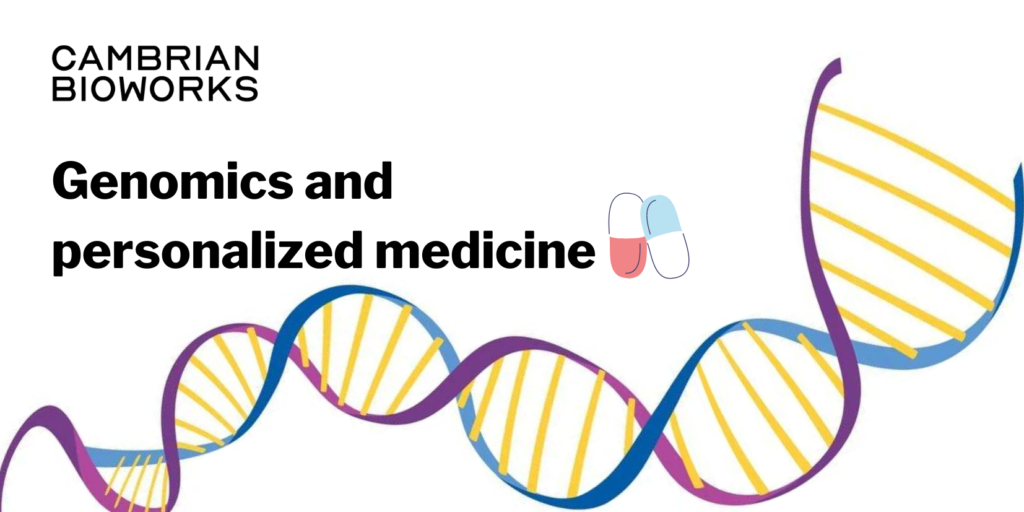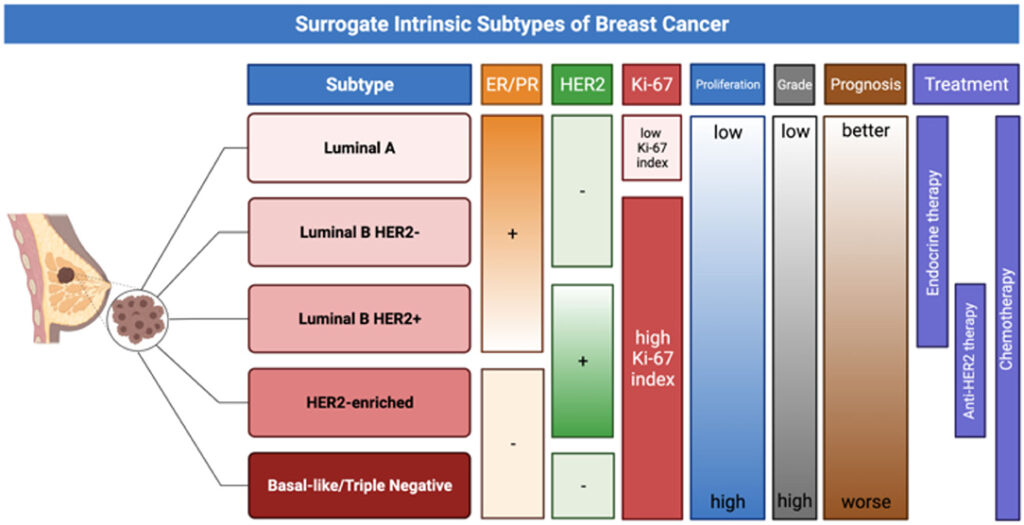Have you ever wondered why a medication that works wonders for others may not have the same effect on you?
Well, it turns out that our genes, lifestyle, and environment all play a role in how our bodies respond to medical treatments.
Enter – Genomics (and its tools that enable risk assessment and prediction).
Genomics provides insights into genetic mutations and molecular pathways implicated in diseases by examining a patient’s DNA. This can be employed to personalize treatments, medications, and prevention approaches to meet the unique requirements of each patient, leading to superior outcomes and minimized adverse effects.

Consider breast cancer. It is no longer considered a single disease but rather a group of distinct subtypes, each with its unique genetic and molecular characteristics. These subtypes differ in their response to treatment, prognosis, and risk of recurrence.
Genomic testing analyzes the DNA of a breast cancer tumor, providing information about the genetic mutations and molecular pathways of the disease. This improves treatment outcomes.
One example of how genomics has changed breast cancer treatment is the use of targeted therapies for HER2-positive breast cancer. HER2 is a protein that promotes the growth and division of cancer cells. Approximately 20% of breast cancers are HER2-positive, i.e. they have too many copies of the HER2 gene, resulting in an overexpression of the HER2 protein. Targeted therapies, such as trastuzumab (Herceptin), can be used to block the HER2 protein and slow the growth and division of cancer cells.
Another example is the use of genomic testing to predict the risk of breast cancer recurrence and guide treatment decisions. Genomic assays, such as Oncotype DX and MammaPrint, can be used to analyze the expression of certain genes in breast cancer cells and predict the risk of recurrence. This determines if chemotherapy is necessary and selects the most appropriate treatment option for each patient.
Of course, personalized medicine is not without its challenges. Access to genomic data can be costly and limited, while data management and regulatory issues must also be addressed. Ethical considerations around privacy, informed consent, and discrimination are also important factors to consider.
Nevertheless, as technology continues to advance and our understanding of the human genome deepens, the future of personalized medicine looks bright. From CRISPR-Cas9 to AI, innovative technologies are emerging that can analyze vast amounts of genomic data to provide personalized treatment options and revolutionize healthcare as we know it.
We build tools that simplifies diagnostics and aid in disease diagnosis, precision medicine, liquid biopsy, and more!
To get more information, contact us at support@cambrianbioworks.com or +91 90356 74375.


